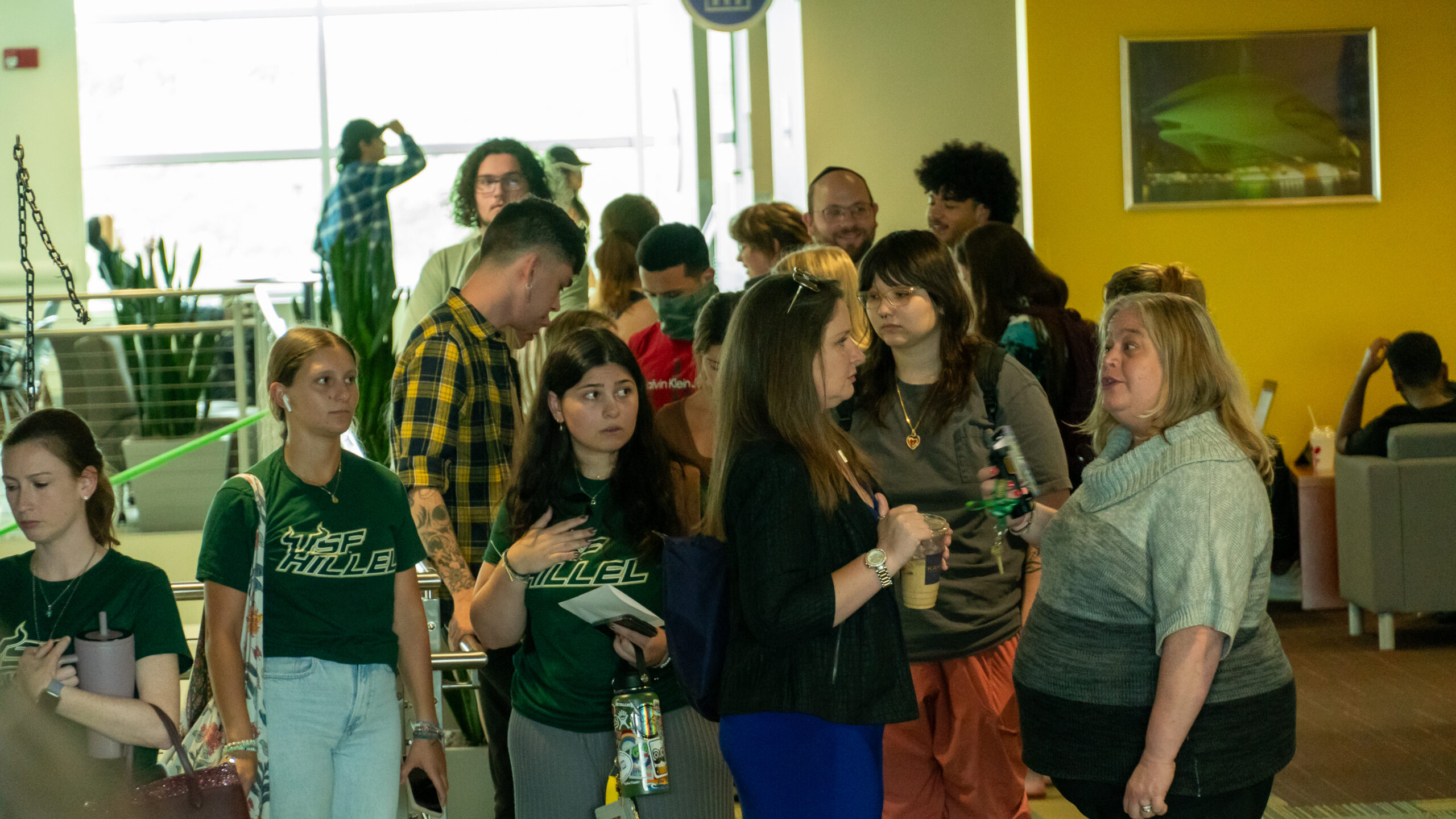Trouble following USF divestment debate updates? Here’s what to know.

Since last fall, a group of USF students have been calling for the university to divest. With months of protests and news, here’s a breakdown of the divestment movement.
Related: USF student leaders narrowly pass divestment measure
On Oct. 7, a designated terrorist group, known as Hamas, launched an attack on Israel, according to a BBC article.
Israel’s counter attack and the death of thousands prompted several USF students to protest on campus, urging the university to not invest in stocks from certain companies they claim support Israel. These students have also referenced the university’s divestment from companies inSouth Africa during the apartheid.
“We don’t have information about state and federal laws from the 1980’s immediately available, but in 2024 we are guided by current state and federal laws,” Johnson told The Oracle.
These protests included a 17-day hunger strike by a group now known as the USF Divest Coalition.
We keep you informed. Learn how you can help
The proposal of the USF Investment and Divestment Resolution is the organization’s recent attempt to get the university to publish its investment portfolio and divest from certain companies.
On April 9, the Student Government (SG) senate passed the non-binding resolution.
USF spokesperson Althea Johnson said USF will not divest.
She said the university does not select individual stocks or companies and will make summary information about investments public.
“The university’s investments will continue to be guided by our mission, fiduciary responsibilities and state and federal laws,” Johnson said.
What is the USF Investment and Divestment Resolution?
Simply put, a senate resolution is a way for students to have their voices heard.
Christian Chow Quan, relations committee vice chair, said it is considered a public statement made by SG, typically on behalf of the student body, but “the school is under no obligation to act.”
At the beginning of April, the USF Investment and Divestment Resolution went through the process.
The resolution was written by former hunger striker Alina Atiq with the intent “to call on USF administration to make their investments public and divest from companies involved in the ongoing assault on Palestine.”
Related: USF has previously divested from companies. How are the Hunger Strikers’ demands different?
Atiq outlines details of the “Israel Hamas war” in Gaza, saying over 32,000 have died in the area since October’s attack. She also lists how the companies the coalition is demanding divestment from have aided the war.
The resolution ends by calling the university to “divest from Hewlett Packard, Boeing, Lockheed Martin, Northrop Grumman, Caterpillar, and other companies complicit in the ongoing assault on Palestine” and publish its investment portfolio.
After a senator reviewed the resolution, it was brought to the relations committee meeting with the authors, where the committee determined it was worth being presented to the entire senate.
Another key role the relations committee plays in representing the student body is bringing the draft of a “large” resolution to “affected parties,” such as USF’s Jewish student population, to discuss how it may affect the group. The relations committee reached out to several Jewish organizations on campus and provided the opportunity to counter the resolution during the meeting.
After the three authors presented the bill during the senate meeting, three students from campus Jewish organizations, including USF Hillel, Chabad at USF and Alpha Epsilon Pi, countered the resolution.
Related: ‘We are scared’: Jewish students feel unsafe amid Israel-Palestine conflict
The resolution, which was originally titled “Divest from Israel Resolution,” was edited following lively debates during the senate meeting to get rid of any inflammatory or irrelevant context.
What’s next?
This resolution was ultimately passed with a narrow 16-15 senate vote on April 9. So, what’s next?
The day after the resolution was passed, the USF Divest Coalition posted a statement on Instagram. They referenced the challenges the resolution has faced, including calls from the student body president not to pass the resolution just hours before the vote.
“[Divestment] has been done many times before and we are only beginning our fight for freedom of oppression everywhere,” the post reads.
Senate President Fariah Ansari said she was proud of her senators for not being swayed by comments from the student body president.
Related: USF student body president urges senators to vote against divestment resolution
She also said while there is a lot of controversy surrounding the resolution, she does not condone any violence against senators or supporters on either side of the issue.
“I am not in support of any action taken against either side or any action taken against senators because of this decision,” she said.
USF Hillel, Chabad at USF, Yehudi and Alpha Epsilon Pi posted a joint statement on Instagram as well, calling the resolution a “highly antisemitic BDS resolution.”
“It is concerning that at a time of unprecedented antisemitism on campuses and in society, that the University of South Florida’s student senate failed to reject such a blatant display of hatred and bias,” the post reads.
The post also references the non-binding nature of the resolution.
While the resolution’s approval from SG is a statement of support on behalf of the student body for divestment, the university has maintained that student opinion will not sway its investments.







